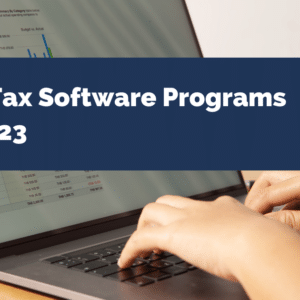The election came and went with as big of a shebang as you’d expect. Now that the dust has settled, there’s one clear winner: Joe Biden.
Over the past four years, there have been changes to the federal tax code. With Biden’s Administration soon taking the lead in the White House, you might be wondering what’s in store for your taxes during the next four years.
No president has the ability to wave a magic tax wand and get all of the rules they want passed.
Right now, Biden’s proposals are just that — proposals. Still, it’s handy to look at what he wants to do as an indication of what might happen. So far, here’s what’s on the negotiation table:
Table of Contents
Key Takeaways
- Biden’s tax plan is considered “highly progressive” by the Committee for a Responsible Federal Budget (CRFB)
- Tax increases will be levied on people making over $400,000 per year
- Relaunch or expand tax credits for parents, first-time homebuyers, and renters
- If all proposals were enacted in 2021, the lowest-income earners would see an 11% income increase immediately, versus an 11% income decrease for highest-income earners
- If all proposals were enacted, it would decrease GDP by 1.6% in the long run
Payroll Taxes
Payroll taxes are those lovely line items on your pay stub for FICA, which is split up into Medicare and Social Security portions. Biden has big plans for one of these areas.
Make High-Income Earners Pay More Social Security Taxes
Currently, 6.20% of your paycheck goes toward Social Security — to a point, that is. Once you start making more than $137,700, you don’t have to pay Social Security taxes anymore.
We’re all familiar with the sinking ship that’s the Social Security program. To stop that leak, Biden’s proposing that people start paying Social Security taxes again on income past the $400,000 mark.
This creates a weird gap for taxpayers earning between $137,700 and $400,000 that would be untaxed. Over time, the bottom limit would be adjusted upward due to annual increases that normally happen.
This would make the gap shrink and then disappear entirely.
Picture it like a door closing from the bottom up so that over time, everyone — even the really tall (or rich) people have to pay their fair share of Social Security taxes.
The CRFB estimates that this would generate an additional $800 billion to $1 trillion from the high-income earners alone if enacted.
Business Taxes
Biden is proposing several changes to the business tax world. For example, a new “Amazon Rule” would require mega-companies to pay at least a minimum tax rate of 15% instead of its current practice of essentially dodging federal income tax.
Corporate income tax would be bumped up, too, from its current level of 21% to 28%. But for the small-business owner, there are a couple of big changes:
1. Phasing Out the Qualified Business Income Tax Deduction
The Tax Cuts and Jobs Act (TCJA) established a 20% deduction on “qualified business income” for pass-through entities like LLCs, sole proprietors, and partnerships. This was never permanent and was set to expire at the end of 2025.
Biden proposes adding a new rule to the mix: phasing this out for people earning over $400,000.
2. Adding New Tax Credits for Small Business Retirement Accounts
There aren’t too many details about this one. Essentially, Biden is proposing a new set of tax credits designed to help small business owners cover the cost of setting up their own workplace retirement plans.
Individual Income Taxes
Income taxes were understandably one of the big focal points of the TCJA, given that there were a lot of changes made and everyone who works has to pay them. Biden’s proposing many equally big changes, too, mostly for high-income earners.
1. Increase Income Tax on High-Income Earners
There was controversy when the TCJA lowered the tax bracket on the highest income earners from 39.6% to 37%.
But this was another change that was never permanent. Unlike the tax cuts for corporations, this decrease was always set to expire at the end of 2025.
Biden only plans to hasten that expiration and raise the tax rate on highest-earners back up to its former 39.6% level.
The current top-tier tax bracket is for individuals earning $518,401 or more per year, but Biden has also said that he “will not raise taxes on anyone making less than $400,000. Period.”
Like everything else, we’ll have to wait and see which proposals actually get passed.
2. Capital Gains Taxed as Ordinary Income for Wealthy Investors
Capital gains are the taxes you pay when an investment you own rises in value. If you were to earn that same amount of money through your day job, it’d be taxed differently as “ordinary income.”
Currently, you’d pay anywhere between 0% and 20% for most types of capital gains taxes.
That’s less than the highest rate for ordinary income, and it’s how a lot of high-income investors dodge taxes. Biden proposes eliminating this loophole by making people pay ordinary income tax rates on any capital gains income over $1 million.
So, instead of a 20% tax rate, high-income investors would pay 39.6%.
Estate Taxes
Estate taxes are what you owe after you inherit something of value, such as a house, a retirement account, or a car. Most people don’t have to worry about this since it only applies to estates worth $11,580,000.
Since it mostly impacts wealthy people, you can be sure Biden has a plan to change it. An important point to note is that it’s not clear at this point whether his proposal would affect everyonewho receives an inheritance or just those who are already subject to the estate tax.
Eliminate the “Step-up Basis”
Normally, when you inherit something, its “basis” (i.e., its starting worth) is calculated based on its current value.
Then, if you sell it, you’ll pay taxes based on how much it’s grown since you’ve gotten ahold of it — not how much it’s grown since the original person bought it.
This is known as the “step-up basis” since you’re stepping up its original value for tax calculation purposes, and Biden plans on eliminating it.
Picture it like this: imagine your mom bought a bunch of shares of Apple stock (AAPL) back when it first launched in 1980 at $0.13 per share.
If your mom kept them all and passed them on to you when she died in January 2020, they’d be worth $80 per share at that time. Today — in November 2020 — they’re worth $119 per share, $39 more than when you got them.
If you sold them today under current rules, you’d only pay taxes on $39 of capital gains. Under Biden’s plan, the entiregain from its original value under its original owner — in this example, almost the entire value — would be taxable.
Tax Credits
It’s everyone’s favorite tax category: tax credits. Depending on whether your income tax bill is already reduced down to zero, you might be able to get even more money back with refundable tax credits.
Non-refundable tax credits aren’t quite as nice because they only reduce your tax liability down to zero, and you don’t get the extra cash past that.
Here are Biden’s tax credit plans.
1. Bringing Back the First-Time Homebuyers Tax Credit
First-time homebuyers were able to take advantage of this tax credit for two years in the wake of the Great Recession. This refundable tax credit of up to $8,000 was a huge boon for a lot of families.
It would also be given out right when you buy the home instead of having to wait until you file your taxes in the following year.
2. Child Credits
If there’s anything we’ve learned recently, it’s that our society isn’t well-equipped to handle children during a pandemic, especially when family finances come into play. Biden proposes easing the burden on parents a bit with changes to two tax credits:
- Child Tax Credit. Raise the child tax credit from $2,000 per child to $3,000 per child (or $3,600 for children under age 6), and up to $1,600 additional child tax credit is refundable.
- Child and Dependent Care Credit. You could get up to 50% back from expenses you pay for childcare or dependent care on up to $8,000 of expenses ($16,000 for multiple kids or dependents), and it would be refundable.
Currently, it’s limited to a max of 35% of up to $3,000 of expenses and is non-refundable. This would increase the maximum value of the tax credit by $5,900.
3. Renter’s Tax Credit
If you’re a renter, you’re mostly out of luck when it comes to the juicy tax breaks that homeowners get.
Biden proposes changing that. The details are light (as with most of these proposals), but the goal is to enact a tax credit that limits rent costs to just 30% of monthly income for low-income families.
Proposed Tax Credit Changes
| TAX CREDITS | PROPOSED CHANGES | MAXIMUM BENEFIT |
|---|---|---|
| First-Time Homebuyers Tax Credit | Permanent Revival With up to $15,000 Credit | $15,000 |
| Child Tax Credit | Increase to $3,000 per Child ($3,600 <6 Yrs) | Up to $3,000 |
| Child and Dependent Care Credit | Up to 50% Back on up to $8,000 ($16,000 Multi) | Up to $5,900 |
| Renter’s Tax Credit | Potential Tax Credit to Limit Rent to 30% | Varies (Income-Dependent) |
Don’t Make Any Plans Yet
Chances are you might be pretty excited by these plans if you’re one of the majority of Americans earning under $400,000 per year.
On the flip side, you might be worried that your tax bill is about to shoot to the moon if you make more than that.
Either way, it’s important to remember the biggest caveat of all: right now, these are just ideas. Some of them may come into reality in some form or another.
But given that Biden needs the support of both the House and the Senate to pass anything — and the Senate appears to be staying firmly red — it’s highly unlikely we’ll see all or even most of these changes as they’re written here.
In sum, we don’t advise making any big changes to your tax plan right now in these wee early days. And before you do, always make sure to consult with your tax professional first.
Bottom Line: Biden’s Tax Plan Impact on You
President Biden’s tax plan outlines significant proposed changes that primarily target high-income earners and aim to provide relief for low and middle-income individuals and families.
Key highlights include increasing income taxes for high earners, taxing capital gains as ordinary income for wealthy investors, and potentially eliminating the “step-up basis” in estate taxes.
The plan also introduces various tax credits, such as expanding the Child Tax Credit and bringing back the First-Time Homebuyers Tax Credit.
However, it’s essential to note that these proposals are subject to negotiation and approval by Congress, making it uncertain which will become law. For now, individuals are advised to consult with tax professionals before making any significant tax-related decisions.







